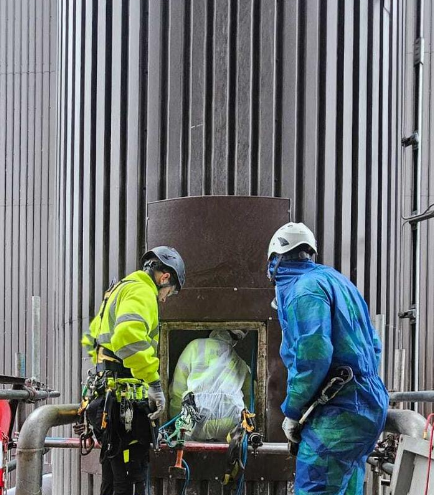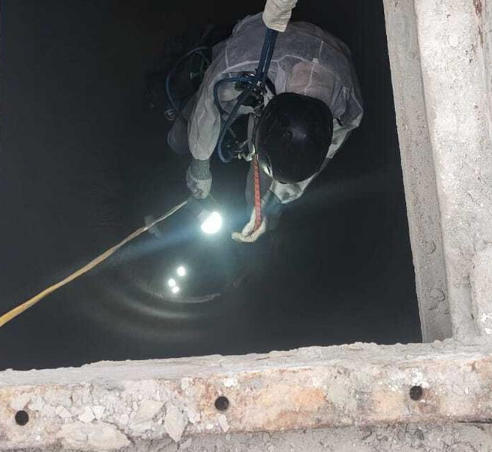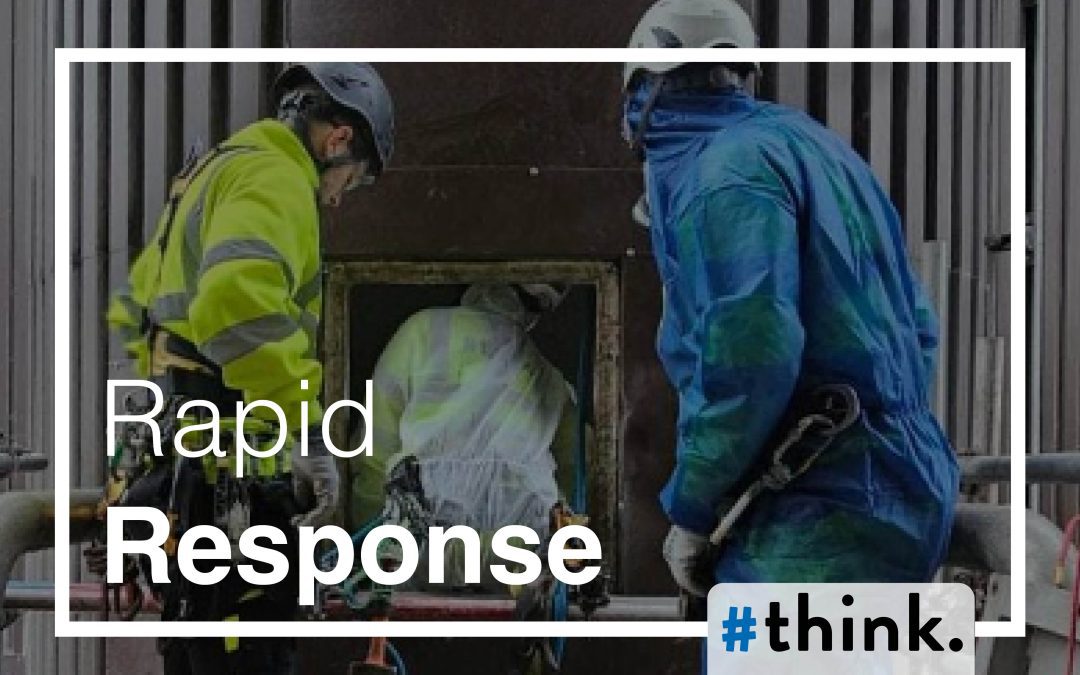
The Challenge: Immediate Action in a Confined, Hazardous Space
Recently, a leading resource management company faced an unexpected shutdown. A critical piece of equipment suffered a buildup of residue, severely hindering its performance. This accumulation compromised operational efficiency and posed a potential risk if left unaddressed. The equipment was in a hazardous, confined space with a complex layout, making it inaccessible through traditional maintenance methods. The need for a rapid and specialised approach was immediate.
Downtime in these situations can lead to significant financial losses, both due to halted production and the potential need for extensive repairs if issues escalate. With these factors in mind, the company called for an expert team that could respond, mobilise, and address the issue swiftly and safely.
Key Success Factors in Rapid Response and Mobilisation
Two-Hour Callout and Mobilisation
One of the most critical factors in this situation was the rapid response and mobilisation time. Within two hours of the call, the rope access and confined space team was on-site, ready to assess and address the issue. The team’s ability to mobilise quickly, with all necessary equipment and personnel, minimised downtime and potential production losses. The fast response was possible due to a well-coordinated system, which prioritised quick callout protocols, streamlined gear deployment, and an immediate on-site team assessment.
Specialised Training and Equipment for Confined Spaces
Confined spaces and hazardous environments pose unique challenges, both in terms of access and safety. The team selected for this mission was extensively trained in both rope access techniques and confined space entry, skills that require years of experience and regular certification updates. Rope access techniques allow specialists to enter otherwise unreachable areas, especially useful for complex industrial layouts. With specialised equipment, including harnesses, air monitoring devices, and emergency escape gear, the team had what they needed to work efficiently in this high-risk setting. This specific expertise is what sets confined space and rope access teams apart from general maintenance personnel, enabling them to complete tasks with both precision and safety.

Safety is paramount in confined space work. Before commencing any work, the team performed a comprehensive risk assessment to identify potential hazards, from oxygen levels and toxic gas presence to physical layout challenges. Implementing strict safety protocols, the team ensured that each step of the job was carefully monitored, with constant communication between team members both inside and outside the confined space. Rescue plans were established, and equipment such as gas monitors and respiratory protection were in place to manage potential risks proactively. This level of planning and safety preparation is essential, as confined spaces can often present hidden dangers that emerge as the work progresses.
Efficiency and Precision in Execution
Once inside the confined space, the team worked with a balance of speed and precision. Rope access techniques allowed them to reach the problematic areas of the equipment safely, applying their training to remove the residue buildup. By employing specific cleaning and maintenance techniques suited to the equipment type, the team quickly restored the equipment to operational status. The specialised training in confined space work allowed them to navigate and work within tight, hazardous environments that would be inaccessible to untrained personnel. Their efficiency in completing the job without incident allowed the company to resume operations without delay, saving both time and money.
Conclusion: The Value of a Skilled Rapid-Response Team
This case highlights the importance of having a specialised, rapid-response team on call for situations that require immediate action in confined or hazardous spaces. The two-hour mobilisation time, combined with the team’s extensive training and commitment to safety, enabled them to restore a critical piece of equipment with minimal disruption to the client’s operations. In high-stakes industrial environments, where any downtime can lead to significant financial impact, the availability of expert confined space and rope access teams proves invaluable.
Through rapid response, expert training, and a focus on safety and precision, these teams are able to address maintenance issues that would otherwise be complex, hazardous, and time-consuming. Their ability to work effectively in confined spaces makes them essential for companies looking to maintain operational continuity and protect their bottom line.
As industrial equipment becomes more complex and regulatory standards for confined space entry become more stringent, the need for highly trained, quick-response confined space teams will only increase. Companies that invest in this level of preparedness are better positioned to handle unexpected maintenance issues, safeguarding both their workforce and their assets. For the resource management company in this case, the rapid response team’s efforts translated directly into minimised downtime, reduced financial loss, and a safer work environment—a testament to the critical role these professionals play in today’s high-stakes industries.

